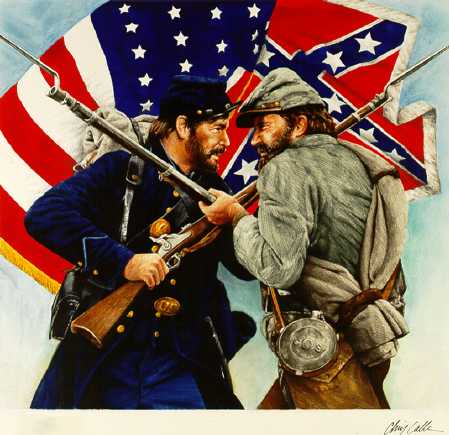Let's start at the beginning:
Since at least the Pentagon Papers case (and surely before even then), the New York Times has made many a nickel on unauthorized leaks of sensitive national security information.
It's true the New York Times is a for-profit concern, but I think it's unseemly to suggest the Times tries to profit from -- as Coffin is going to get around to implying -- killing American soldiers. Most newspapers operate with two missions: A) to turn a profit and B) to serve the public. At their best, for-profit media has offered defenders of capitalism a success story: Doing well by doing good. Sometimes, "doing good" means publishing information that's of public interest -- even if the government wants it hidden. Which leads us to the next bit...
The biggest, though certainly not the only, whopper during the Bush administration was its exposure of the Terrorist Surveillance Program — the NSA wiretapping program targeted at al-Qaeda. With as much self-righteousness as he could muster, executive editor Bill Keller at the time explained that the paper published the leaked information because “we were convinced there was no good reason not to publish it.”
So the “unauthorized disclosure” of classified or sensitive information is not something that the Times generally loses sleep about.
In fact, the Times lost about a year of sleep over the warrantless wiretapping story. That's how long the paper declined to publish the piece ... because of national security concerns raised by the Bush Administration. In fact, that information was a critical part of the original story:
The White House asked The New York Times not to publish this article, arguing that it could jeopardize continuing investigations and alert would-be terrorists that they might be under scrutiny. After meeting with senior administration officials to hear their concerns, the newspaper delayed publication for a year to conduct additional reporting. Some information that administration officials argued could be useful to terrorists has been omitted.
So why did the Times proceed with the story? Because its reporting revealed there were substantial concerns within the Bush Administration about whether the program was legal. Eric Lichtblau, one of the reporters, later recounted:
Jim and I had already learned about much of the internal angst within the administration over the legality of the NSA program at the outset of our reporting, more than a year earlier in the fall of 2004. Still, the editors were not persuaded we had enough for a story—not enough, at least, to outweigh the White House's strenuous arguments that running the piece would cripple a vital and perfectly legal national-security program. It was a difficult decision for everyone.
Risen's book was a trigger, but we realized we weren't in the paper yet. We still had to persuade the editors that the reasons to run the story clearly outweighed the reasons to keep it secret. We went back to old sources and tried new ones. Our reporting brought into sharper focus what had already started to become clear a year earlier: The concerns about the program—in both its legal underpinnings and its operations—reached the highest levels of the Bush administration. There were deep concerns within the administration that the president had authorized what amounted to an illegal usurpation of power. The image of a united front we'd been presented a year earlier in meetings with the administration—with unflinching support for the program and its legality—was largely a façade. The administration, it seemed clear to me, had lied to us.
The Times, it seems to me, did exactly what you'd hope a newspaper would do in a free society: It weighed arguments about the program's warfighting utility against the possibility that the program was illegally usurping Americans' civil liberties. It held the story a year out of an abundance of caution. But it did publish the story, eventually, when concerns about the program's legality couldn't be resolved behind closed doors. A lot of people were angry at the Times for holding the story so long.
Anyway, back to Coffin:
Indeed, an editorial in September 2009 trumpeted the fact that “the abuse of prisoners at Abu Ghraib, the secret CIA prisons in Eastern Europe for terrorists and warrantless wiretapping all came to light through the unauthorized disclosure of classified information.”
Yup. And I say: Hooray for leakers!
Coffin -- like James Taranto at the Wall Street Journal -- then goes on to decry the Times' apparent "anguish" about the "unauthorized" nature of the Climategate e-mail release. (Personally, I think Coffin and Taranto are very much overreading the Times' apparent anguish here, but whatever.) And that leads to Coffin's coup de grace:
Perhaps the Times is turning a corner, and we can expect similar concerns to be raised whenever they root out classified government information that may — oh, I don’t know — result in the loss of American lives.
Here's my challenge to Shannen Coffin (not that he'll ever read this, but still):
Show me the bodies of Americans who lost their lives because of the warrantless wiretapping story. I don't think they exist, frankly, because if they did former Bush Administration officials and their allies would've been parading them around for years in order to get news organizations like the Times on the defensive. So Coffin's invocation of (hypothetical) American deaths is, well, a cynically questionable assertion in the service of letting the government commit legally questionable acts.
I admire conservatism when it urges limits on government in the name of individual freedom. What Coffin's advocating here is somewhat the opposite.

